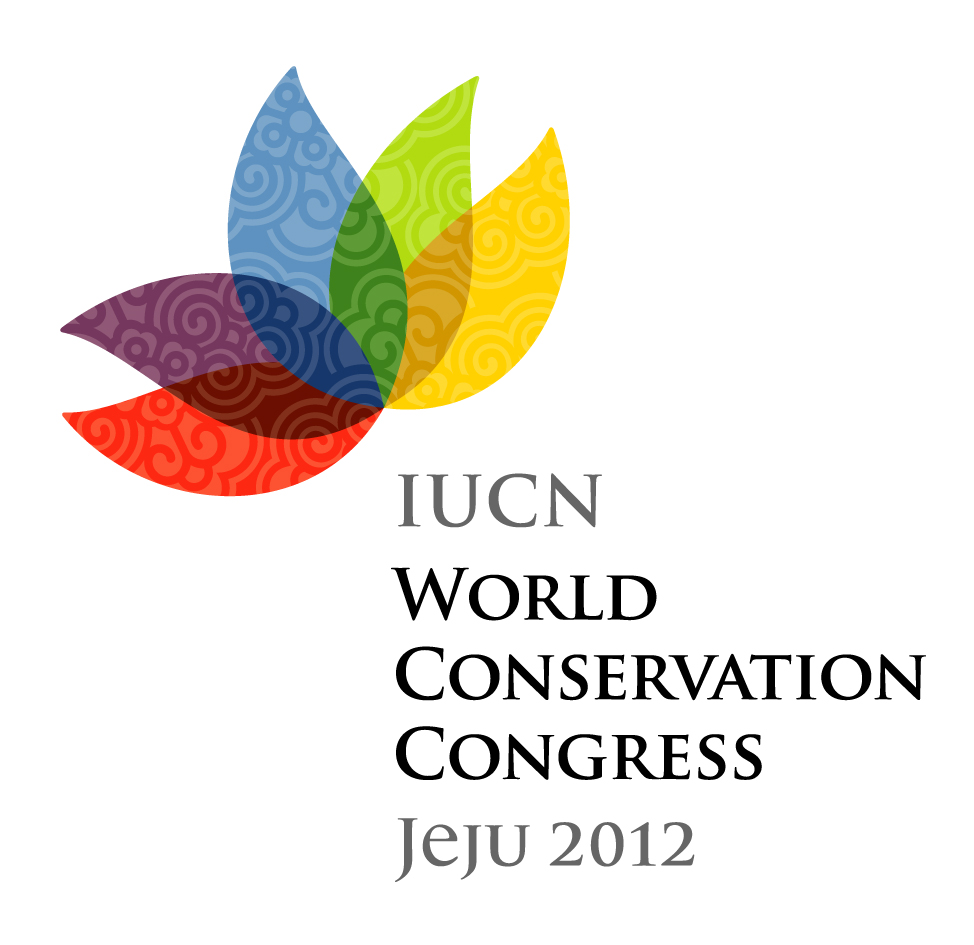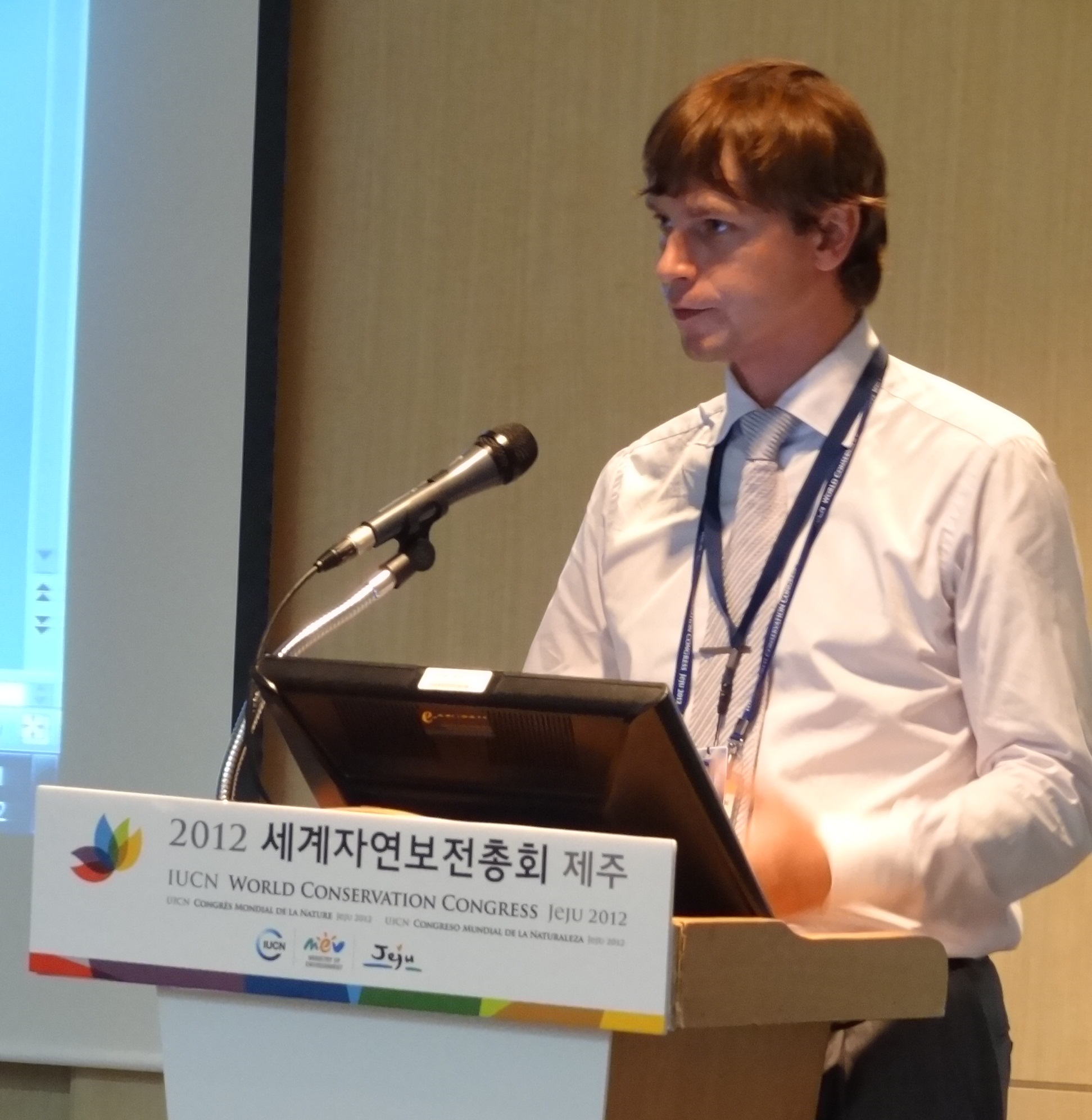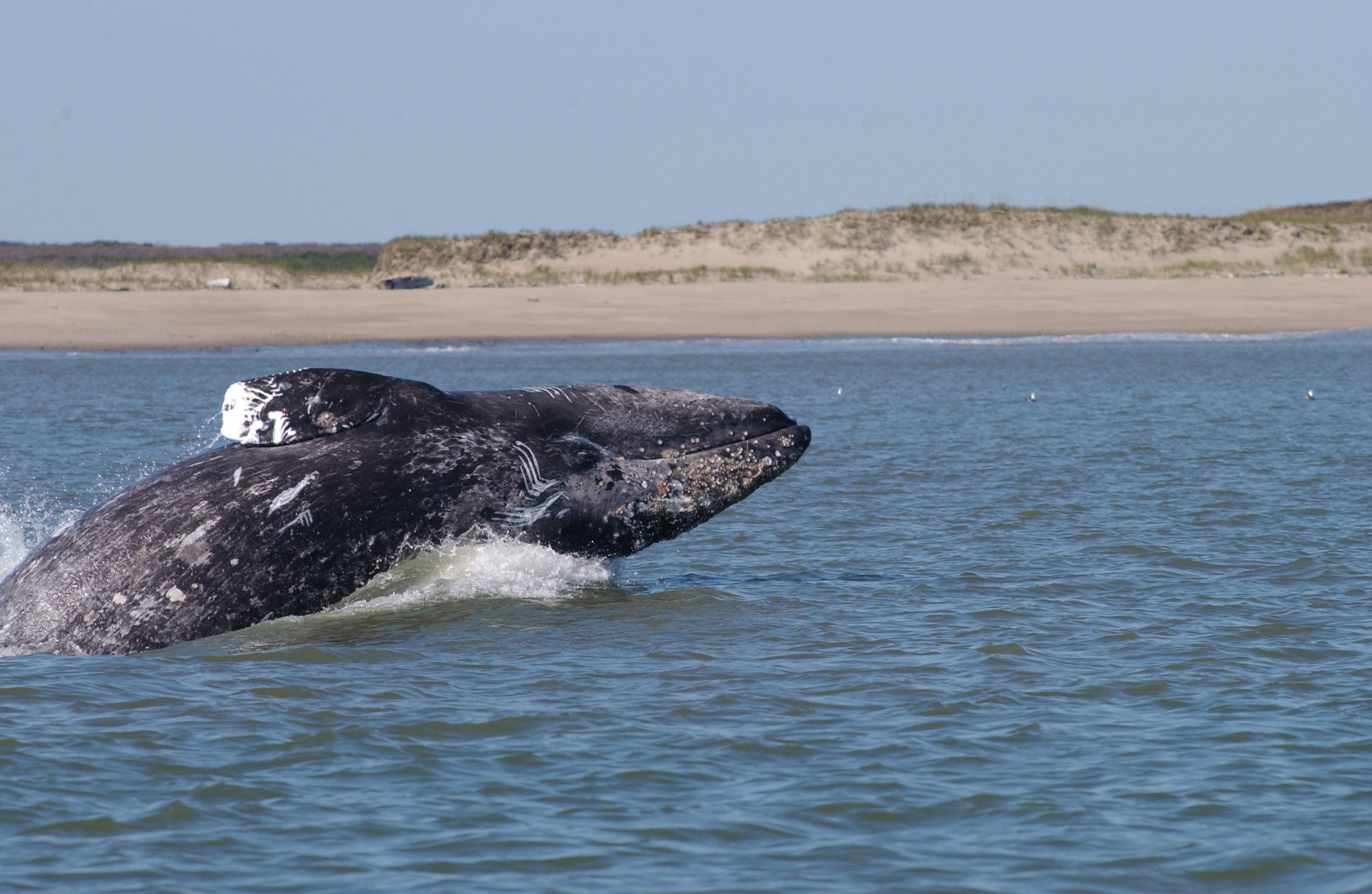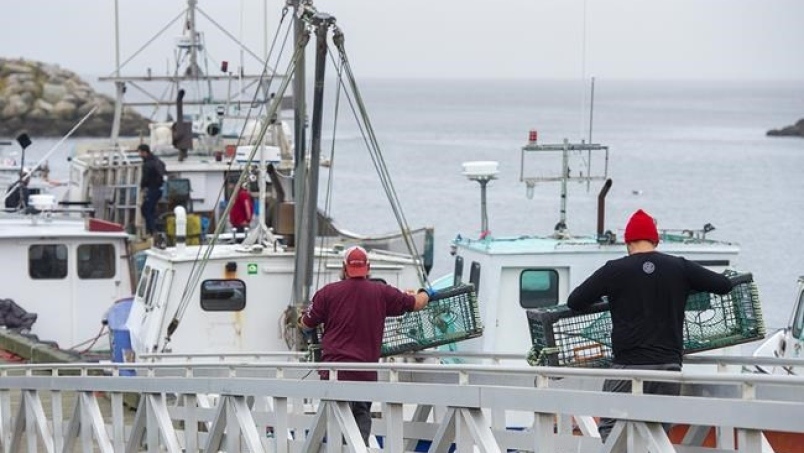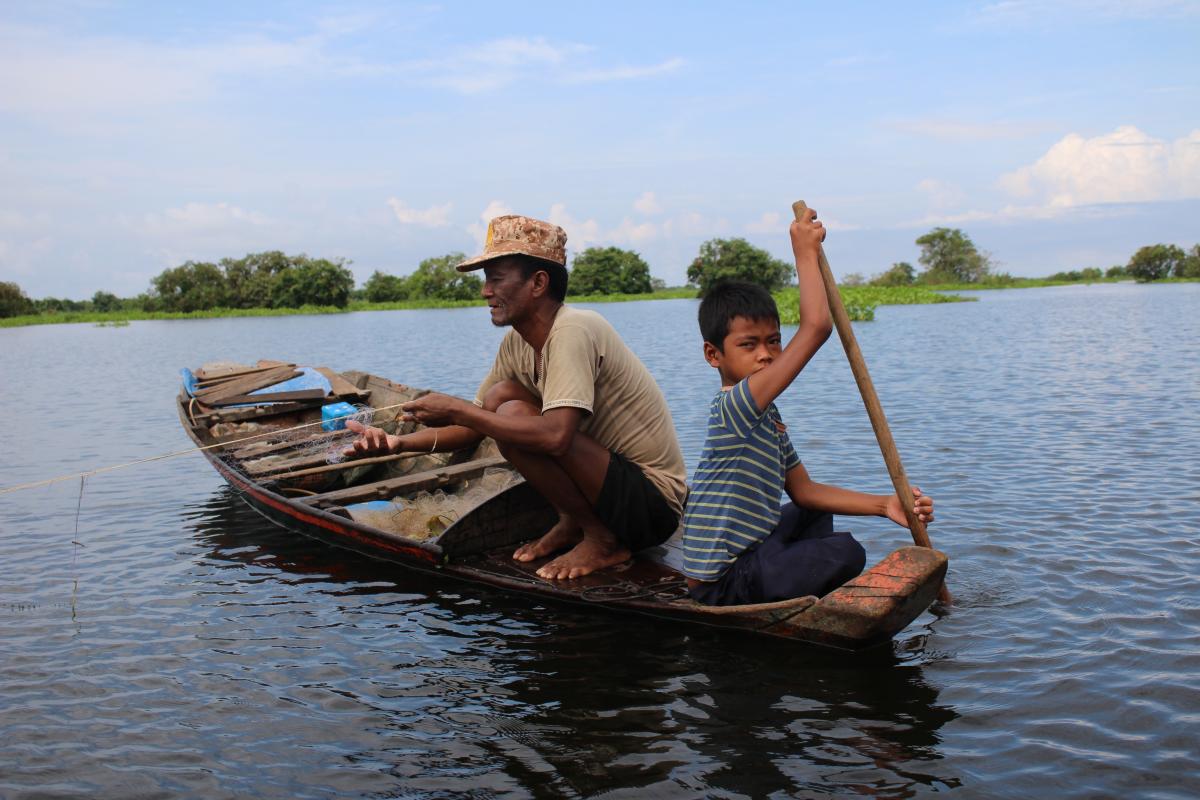WGWAP shares lessons learnt at IUCN World Conservation Congress
During IUCN’s World Conservation Congress held in Jeju, South Korea, conservation of the critically endangered population of western gray whales was on the agenda. The IUCN Marine and Polar Programme (GMPP), Sakhalin Energy Investment Company Ltd (SEIC) and IUCN’s Western Gray Whale Advisory Panel (WGWAP) convened a workshop on 9 September 2012 entitled “Business and IUCN Join Forces: Lessons learned from Western Gray Whale Conservation”.
The workshop, chaired by Dr. Carl Gustav Lundin, Director of the GMPP, featured two presentations, one by Dr. Alexey Vladimirov, Head of SEIC’s Offshore Environment Monitoring Team, and the other by Dr. Randall Reeves, Chairman of the WGWAP. The event aimed to share the successes and lessons learned of the Western Gray Whale Conservation Initiative and to solicit a broad engagement of the range states, relevant companies and civil society which is needed for the Western gray whale population to survive and recover.
Dr. Vladimirov reviewed the company’s monitoring and mitigation efforts and emphasised the value that the company places on input received from the independent panel of scientists, who come from North America, Europe and Russia. Dr. Reeves summarised the history and status of gray whales and explained how the WGWAP process functions. Both presenters cited the importance of expanding this conservation initiative to address range-wide threats, which include mortality of western gray whales in fishing gear in Japan and China, disturbance from oil and gas development by companies other than SEIC, and ship traffic not only off Sakhalin Island (Russia) where the whales feed in the summer and autumn, but also in their migration routes and wintering areas. Assessing (and mitigating) the cumulative impacts of all kinds of human activities on western gray whales represents a major challenge to all parties involved – IUCN, the company and the panel of scientists.
IUCN has pushed hard to ensure that lessons learned through this process are applied in its other interactions and arrangements with the private sector. Since the first gray whale panel was established in 2004, IUCN has set up similar independent panels in Yemen and Nigeria. It has also sought to develop and publicise ‘best practices’ for mitigating the effects of noise-producing activities on marine wildlife, particularly whales. Information on these efforts and on all aspects of the WGWAP initiative is provided on the WGWAP website.
The workshop at the World Congress benefited from participation by officials from western gray whale range states and representatives of financial institutions and conservation organizations. The participants commended the WGWAP, SEIC and IUCN on what has been achieved by the project to date, and on the proposed bold new ideas for the future, which include reaching out to more offshore oil and gas operators and to range states beyond Russia.
For more information, please contact:
Tatiana Saksina, Programme Officer for the Western Gray Whale Conservation Initiative, IUCN Marine and Polar Programme, e-mail: tatiana.saksina@iucn.org
